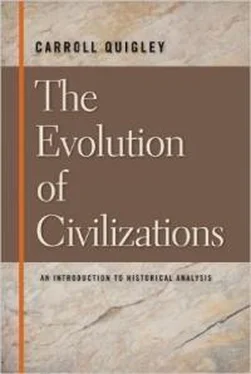The best known case of an individual starting out as a follower of the Ionian sciences and then becoming a Pythagorean rationalist is to be found in the autobiographical remarks which Plato put into Socrates' mouth in the Phaedo. In earlier years, he said, he had been a follower of the natural philosophers (that is, the scientists) and even for a while had accepted the teachings of Anaxagoras, but he soon discovered that the senses were not dependable and that the views of scientists were never in agreement and were always changing. Accordingly, he had abandoned dependence on the body and discovered that truth could be found by reason alone. The real philosopher, he felt, should be glad to die, because this would free him from the confusion of the body and the senses. The knowledge of the essence of things must be sought "with the mind alone, not introducing or intruding into the act of thought the sight or any other sense along with reason ...; he who has got rid, as far as he can, of eyes and ears and, so to speak, of the whole body, these being in his opinion distracting elements which, when they infect the mind hinder it from acquiring truth and knowledge. . .." "I decided," he said, "to take refuge from the confusion of the senses in argument and by means of argument alone to determine the truth of reality." The truth thus revealed is recollection, recalled from a previous existence, and its truth is not to be tested, as a scientist would do, by observation but simply by the mathematical rule that all inferences deduced from it are mutually consistent.
We have already mentioned that these Pythagorean ideas held and propagated by Socrates, Plato, Xenophon, and others were not tenable because long before, while Pythagoras was yet alive, one of his disciples had used the master's own Pythagorean theorem to prove that space was irrational (because it was a continuum). This means that it was possible to prove the irrationality of reality by purely rational (mathematical) arguments and that, accordingly, the fundamental assumption of this school about the rationality and logic of reality was false. Such a discovery should have led any honest seekers after truth to abandon this fundamental assumption about reality and to fall back on some other assumption (such as the scientists' assumption that the senses do give us information about reality).
The continued adherence by the rationalist school to beliefs they knew were false can only be explained on the ground that they had an interest in these beliefs beyond their devotion to truth. Naturally this interest was not stated by these people publicly. At least, no such statement appears in the ancient evidence; so once again we must rely on inference: the key to the thinking of the Pythagorean rationalists lies in their fear of change and hatred of change. Beyond the ordinary change of the physical world they saw the social change that, for centuries, had been spreading political power and economic benefits wider and wider. There can be no doubt that the Pythagorean rationalists resented these political and social changes and wished to deny the possibility and reality of change. Pythagoras himself was the founder of an international oligarchic conspiracy, the Pythagorean Brotherhood, which operated out of Croton, in southern Italy, until it was forced to flee from that city by a democratic uprising about 510 B.C. Thereafter this organization centered in Thebes in Boeotia. In international affairs it operated in support of the oligarchic states and in opposition to the democratic states, like Athens. In intellectual matters it attacked Ionian Science, the sophists, the philosophic nominalists, and the upholders of democracy and of human equality. The latter groups had become allied and, in some cases, identified for logical and historical reasons.
Until the end of the seventh century the Greeks lived in a fairly static society in which each individual's position was based on status rather than on choice or conscious decision and in which it was rare to meet any person with different customs or ideas than oneself. Accordingly, it was but natural for the Greeks to assume that the ideas and customs that they practiced themselves represented intrinsic and innate human nature and absolute truth in a system of absolute and universal values. The growth of commerce and of colonial expansion gave a rude shock to these ideas by showing the Greeks people with ideas and customs different from their own and often antithetical to theirs. The culmination of this educational process is to be seen in Herodotus, who is almost gullible in his readiness to believe that non-Greeks can practice almost any social customs. Experiences such as these could hardly fail to make a thoughtful people begin to examine the basis of their own customs. Can customs be based on essential human nature when different peoples act so differently? Or can there be any absolute value systems or social standards when different peoples have such diverse convictions? From these discussions there emerged, by the fifth century, two quite opposed points of view. On the one hand, the conservatives insisted that there was an absolute system of values and of social behavior and that in this system the customary Greek behavior was the natural inborn behavior of those beings who were fully human; any persons who acted or thought otherwise were at a lower level of this same absolute standard because their natures were not fully human. These conservatives saw the universe of living beings as a kind of hierarchy in which animals acted like animals, barbarians acted like barbarians, Greeks acted like men, and demigods acted like demigods, each according to its "real" nature. From this point of view developed two powerful theories that are still with us today: (!) that all differences between kinds of objects are real, eternal, and objective distinctions, and (2) that all differences between men are equally real, unchangeable, and objective, the result of biological (that is hereditary) differences. The first of these theories led, most obviously, to the corollary that species distinctions are real or, as the philosophers put it, universals are real. This is known as philosophic realism. The second, closely related theory, led to the belief that human personality is identical with human nature, each being based on the individual's biologic heredity and that, accordingly, social distinctions (such as those between noble and worker or between free man and slave) are based on real differences rooted in nature.
The point of view opposed to this absolute thinking was more relativist. It regarded differences in social customs as merely conventional differences indicating no real difference between barbarians and Greeks, between nobles and workers, or between free men and slaves. The external differences between these were merely accidental occurrences, resulting from different environment or upbringing, and signifying no really fundamental differences between the basic natures of the persons concerned. The customs of tribes or the positions of individuals were mere conventions, arising from history, and were thus capable of change in the future as they had changed in the past. In this point of view there was a distinction between nature and personality, the former being presumably the same for all men, while the latter was different merely because each person's history was different. Distinctions were not based on nature but on convention; moreover, if Heraclitus was correct about the dynamic nature of all the universe, then no distinctions between kinds of things were real, but were all equally conventional, drawn by a local consensus and indicated by verbal differences. This point of view led to philosophic nominalism and social, if not ethical, relativism. The chief distinction between noble and worker or between freeman and slave is not any absolute or real distinction but only a verbal distinction based, at most, on superficial and conventional distinctions such as exist between all individuals.
Читать дальше










